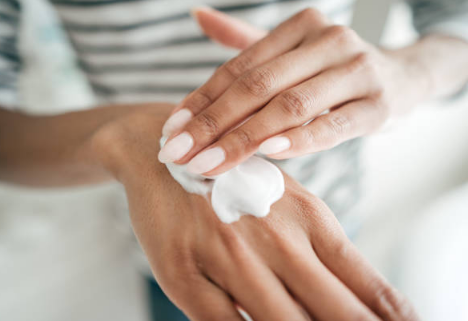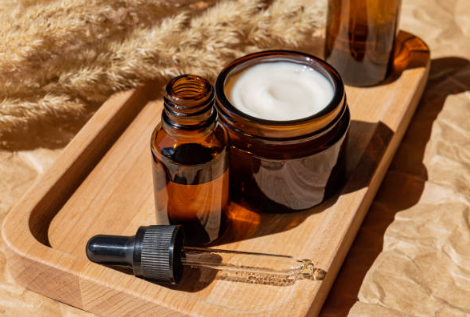Dry skin occurs when the skin lacks sufficient moisture, leading to symptoms like roughness, tightness, itching, flaking, or scaling. A variety of factors can cause dry skin, including lifestyle habits, age, certain medications, skin conditions, and environmental changes.
1. Moisturizer Ingredients
If your moisturizer is too lightweight or doesn’t contain ingredients suited to your skin type, your skin may still feel dry. Gel-based or water-light moisturizers may not be hydrating enough for very dry skin.
Look for moisturizers with ingredients such as:
-
Shea butter
-
Ceramides, which are lipids naturally found in skin cells that help maintain the skin’s protective barrier
-
Glycerin, a humectant that draws in moisture
-
Urea, which boosts hydration and helps prevent moisture loss

2. Environmental Factors
Certain weather conditions and environmental exposures can make your skin drier and harder to care for. These include:
-
Cold weather
-
Low humidity
-
Indoor heating systems
-
Intense sun exposure
If you’re regularly exposed to chemicals—such as in hair salons or cleaning services—your skin may also become drier than usual.
3. Lifestyle and Habits
Some daily habits can impact your skin and its ability to stay hydrated, including:
-
Not drinking enough water or eating a poor diet, which may lead to deficiencies in nutrients like vitamins A and D, zinc, or iron
-
Frequent bathing, using hot water, or taking long showers
-
Certain medications like diuretics, beta-blockers, birth control pills, and retinoids
4. Underlying Health Conditions
If you’re dealing with a chronic (long-term) or recurring case of dry skin, an underlying health or skin condition could be the cause.
Common skin conditions linked to dryness include:
-
Eczema (atopic dermatitis)
-
Contact dermatitis
-
Seborrheic dermatitis
-
Psoriasis
Medical conditions like diabetes, hypothyroidism, Crohn’s disease, and ulcerative colitis can also contribute to dry skin. Even pregnancy and menopause can affect skin hydration.
5. Age, Gender, and Ethnicity
Your age, gender, and ethnicity can all influence how prone you are to dry skin:
-
Age: Dry skin is one of the most common skin issues in people over 60 due to a natural decline in oil production.
-
Gender: Women are more likely than men to experience dry skin.
-
Ethnicity: Research shows that Black individuals may be more prone to dry skin than White individuals. Some studies also suggest that Asian skin may experience higher rates of moisture loss compared to other groups.

Solutions and Recommendations
Whether your dry skin is chronic or occasional, there are steps you can take at home to help manage and relieve it.
Product Choices & Proper Application
Using high-quality skincare products and moisturizing regularly can make a big difference:
-
Choose the right moisturizer: For dry skin, opt for creams or ointments containing hydrating ingredients like ceramides, jojoba oil, glycerin, hyaluronic acid, shea butter, mineral oil, lanolin, or lactic acid.
-
Stick to gentle products: Avoid skincare with alcohol, fragrances, or retinoids, which can make dryness worse. Look for gentle, fragrance-free cleansers and body washes.
-
Apply moisturizer frequently: Dry skin is damaged skin—so it needs support to repair itself. Moisturize several times a day, especially within five minutes of showering or anytime your skin feels tight or rough.
Lifestyle Changes
Simple changes to your daily routine can help improve your skin’s condition:
-
Stay hydrated: Drinking more water can significantly improve skin hydration, as skin is made up largely of water.
-
Limit showers and use warm (not hot) water: Long, hot showers can strip your skin of its natural oils. Keep showers short—about five minutes—and use lukewarm water.
-
Use a humidifier during winter: Adding moisture to dry indoor air can help prevent skin from drying out. A portable humidifier in your bedroom can make a noticeable difference.
-
Avoid sunbathing and tanning beds: UV rays from the sun or tanning beds can dry out your skin. Limit sun exposure, wear protective clothing, and always use sunscreen.
-
Protect your skin from the cold: Exposure to cold air can worsen dryness. Wear gloves and a scarf to protect your hands and face when you’re outside.